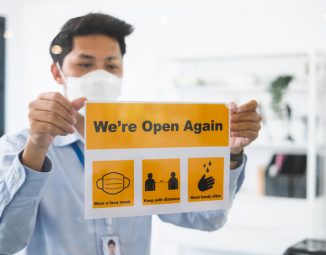New Jersey Paid Sick Leave Bill Passes – How will it Affect Your Organization?
On May 3, 2018, New Jersey became the tenth state to require employers to provide their employees with paid sick leave. The new legislation, which will go into effect on October 29, 2018, preempts existing paid sick leave laws in 13 New Jersey municipalities, and introduces a statewide minimum amount of paid sick leave in the private sector. This latest development is part of an expansion of employee rights under new Governor Phil Murphy and the Democrat-controlled state legislature, as predicted by HR Legalist.
What Employers are Covered?
Unlike other paid sick leave laws (such as Philadelphia’s Sick Leave Ordinance), New Jersey’s paid sick leave law applies to all private sector employers, regardless of size (with very limited exceptions for certain types of workers).
Amount of Leave Available
This new law requires employers to provide employees with at least one hour of paid sick time for every 30 hours worked. Employers can cap that accrual at 40 hours (five days) of earned sick time per benefit year (defined as a 12-month period of the employer’s choice). Employers may also choose to provide employees with a full year’s complement of sick time on the first day of the benefit year. Up to 40 hours of paid sick leave must be carried over to the next benefit year unless the employer offers, and the employee chooses to accept, payment of unused sick time at the end of the benefit year. Employees may, but are not required to, accept a partial payout (exactly 50%) of their accrued paid sick leave at the end of the benefit year and carry over the rest for use in the next benefit year.
Employers that offer paid time off at a rate equal to or greater than the law will be in compliance, as long as employees are allowed to use earned sick leave for the same purposes listed below.
Use of Earned Sick Leave
Sick leave begins to accrue on hire, and employees can use it after they have been employed for 120 days unless the employer agrees to an earlier date. Employees may use paid sick time for the diagnosis, care, treatment of, or recovery from, a mental or physical illness, injury or other adverse health condition, or for preventative medical care of 1) the employee, 2) the employee’s family member, and/or 3) an individual whose close association with the employee is the equivalent of a family relationship. The law also covers:
- Care for covered individuals that were the victim of domestic violence (under limited circumstances);
- Time needed because of a closure of the employee’s workplace or the school or place of care of a child of the employee by order of a public official due to an epidemic or other public health emergency; and
- Attendance at school-related functions and meetings concerning a child’s mental health condition or disability.
Employers may require employees to provide up to 7 days’ notice prior to taking leave if foreseeable. For unforeseeable leave, employers can require employees to provide notice as soon as practicable. Employers may also request reasonable documentation (such as doctors’ notes) for paid sick leave exceeding three consecutive days.
Notice Requirement
Employers must notify employees of their rights under the law in a conspicuous location, and must provide each employee with a written copy of the notification no later than 30 days from the issue of the notification, or at the time of hiring after the notice is issued.
Anti-Retaliation Provisions
Employers may not take retaliatory or discriminatory action in connection with an employer’s request or use of earned sick leave. This is similar to existing anti-retaliation provisions of the Family and Medical Leave Act (“FMLA”) which applies to employers with 50 or more employees. However, New Jersey’s paid leave law goes further, establishing a rebuttable presumption of unlawful retaliation if an employer takes adverse employment action within 90 days of an employee’s protected activity under the law. The following employee activities are considered protected:
- Filing a complaint with the Department of Labor.
- Informing other employees about the law.
- Cooperating in the investigations of a violation.
- Opposing employer practices that violate the law.
It remains to be seen how this new rebuttable presumption of retaliation will be interpreted by New Jersey courts. However, employers should be very cautious before disciplining or terminating an employee who has complained about paid sick leave issues – even if there are performance concerns or other legitimate reasons for taking that action.
Record Keeping
Under the law, employers must retain for a five-year period records documenting hours worked and earned sick leave taken by employees. Upon demand, employers must allow the Department of Labor access to those records.
Penalties for Violation
Violations of this law are considered violations of the New Jersey State Wage and Hour Law, which provides for a private cause of action. In addition to the remedies provided under New Jersey’s Wage and Hour Law, employees who bring private lawsuits for violations of the law are entitled to liquidated (double) damages.
Takeaways for Employers
Employers should review their policies and handbooks now to ensure that they have a paid sick leave policy in place. Employers that already have paid sick leave policies or paid time off (PTO) policies on the books should check to ensure that their policies provide at least as much leave as the law requires, for all of the purposes listed in the new law. Employers should also inform managers and supervisors of any new policy changes and of the importance of the provisions of the law prohibiting retaliation. Finally, employers should be on the lookout for the paid sick leave poster that will soon be released by the Department of Labor, which employers will be required to display in the workplace.
The information contained in this publication should not be construed as legal advice, is not a substitute for legal counsel, and should not be relied on as such. For legal advice or answers to specific questions, please contact one of our attorneys.





